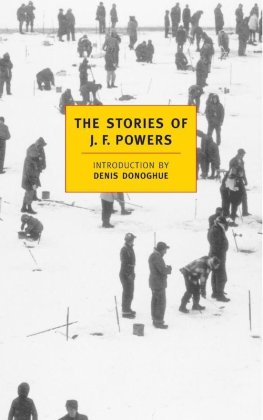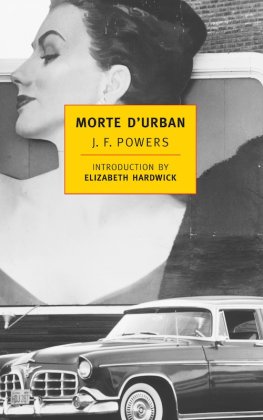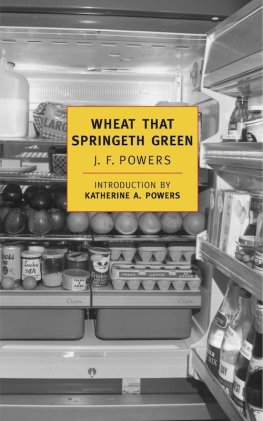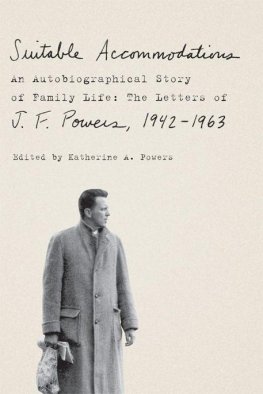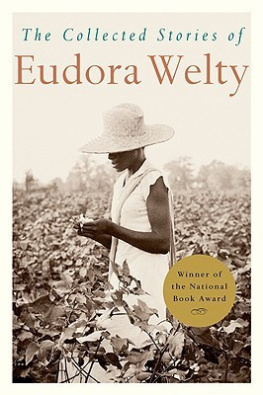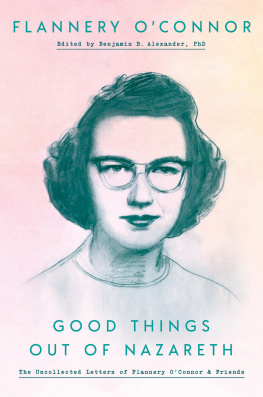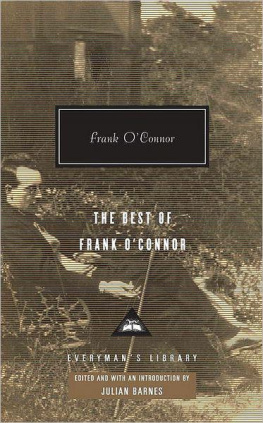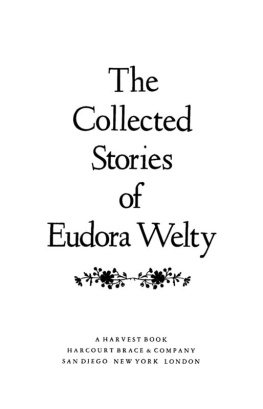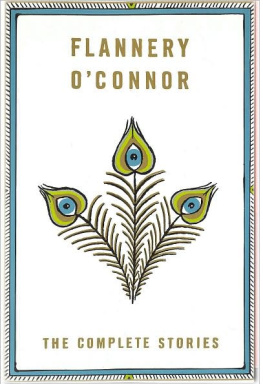J. F. Powers
The Stories of J.F. Powers
J. F. POWERS (19171999) was born in Jacksonville, Illinois, and studied at Northwestern University while holding a variety of jobs in Chicago and working on his writing. He published his first stories in The Catholic Worker and, as a pacifist, spent thirteen months in prison during World War II. Powers was the author of three collections of short stories and two novelsMorte DUrban, which won the National Book Award, and Wheat That Springeth Greenall of which have been reissued by New York Review Books. He lived in Ireland and the United States and taught for many years at St Johns University in Collegeville, Minnesota.
DENIS DONOGHUE is University Professor at New York University, where he holds the Henry James Chair of English and American Letters. He is the author of many books, including Connoisseurs of Chaos, Reading America, We Irish, and Walter Pater: Lover of Strange Souls.
HE WAS James Farl Powers on his birth certificate and Jim Powers to his friends. In the history of modern fiction J. F. Powers (19171999) was a distinctive figure, a loner, emerging from quietness every few years when he published a book or won a prize, but otherwise content to mind his own professional business. He is sometimes described as a writers writer, meaning that he was an artist too good to gratify the most casual reader, but he was also a readers writer, if we assume a reader who thinks of fiction as intelligent art rather than low entertainment. Such writers tend not to be abundant, they work hard on their sentences. Powers published only a few books three collections of short stories, Prince of Darkness, and Other Stories (1947), The Presence of Grace (1956), and Look How the Fish Live (1975), the contents of which have been gathered in this volume, and two novels, Morte DUrban (1962) and Wheat that Springeth Green (1988). But these are treasured, guarded with jealousy by those who know of them. News of their quality is passed from one adept to another, like word of an idyllic village in an unfashionable part of France, not to be disclosed to the ordinary camera-flashing tourist. Now that Powers is dead, he has become his admirers, as W.H. Auden said of the poet Yeats.
I met Powers only once. He and his wife and children lived for several years in Ireland, in a small seaside town about seventeen miles south of Dublin called Greystones. (It is clearly the Ballydoo of his short story Tinkers.) He rarely left the town, even to sample the joys of Dublin. But he became friends with the Irish novelist and short-story writer Sean OFaolain, who lived a few miles away in an even more salubrious place, Killiney. I lived in Mount Merrion, a suburb on the south side of Dublin. My social life was meager, so I accepted with enthusiasm an invitation from OFaolain to come to lunch in Killiney. Jim Powers would be there.
I reached Killiney rather early. Before Powers arrived, OFaolain passed the time making mild fun of him. Did I know that Powers spent the morning putting in a comma and the afternoon wondering whether or not he should replace it with a semicolon? OFaolains teasing didnt stop when Powers rang the doorbell. Ive been telling Donoghue about your attentiveness to commas and semicolons. Powers smiled and indicated by his silence that he was not inclined to argue the question. OFaolain was an amiable host, and a good writer when he cared to be, but Im sure he never worried about the relative merits of a comma and a semicolon. It was said that he wrote two thousand words a day whether he felt well or ill. I recall nothing of the conversation at lunch, beyond an impression that OFaolain, his wife Eileen, and I talked a lot and to no memorable purpose. Powers nodded his head from time to time, either in agreement on the point being made or to indicate the degree of his indifference to the issue.
Morte DUrban won the National Book Award in 1963 and gained for Powers recognition as a novelist. But he seems to me by native gift a short-story writer. I recall getting a letter from the poet William Carlos Williams in which he said that writers have each their own natural breath. Some take short breaths, others long. Whitman took long breaths, Emily Dickinson short ones. It required talent to judge what your natural form of breathing was. I think Powers knew that his native breath was that of the short story. He tried for the longer breath of the novel twice because, I assume, he wanted to deal with a bigger cast of characters and a wider screen. But I think his talent was happiest in the concentration, the focus, of the short story. It was as if he thought life most clearly disclosed in the telling anecdote.
In one of the prefaces to the New York edition of his fiction, Henry James spoke of his experience in writing short stories. He recalled that his struggle to keep compression rich, if not, better still, to keep accretions compressed, betrayed for me such community with the anxious effort of some warden of the insane engaged at a critical moment in making fast a victims straitjacket. James was exhilarated by the restriction. He was stirred by the necessity of treating a theme that gave much in a form that, at the best, would give little. He was inclined to follow the anecdote from which the little story arose as much as possible from its outer edge in, rather than from its center outward. He accepted the anecdote for what it was, trying always to keep the possible accretions compressed.
Powers observed the same formal policy. The outer edge was for him the everyday visible world, full of rectories, priests, housekeepers, cars, cats, parishioners. The center, however, bristled with little disclosures, nuances of personality, prejudice, and mood. In The Valiant Woman Father Firman wants to get rid of his housekeeper, Mrs Stoner. She is a holy terror, a predictable aggravation, runs his life for him, gives him minor hell. But he knows that he cant get rid of her. The oppressive thought occurs to him that she treats him as if she were his wife; except that she sleeps in the guest room. Every evening, before going to bed, they play cards: the final murderous hour in which all they wanted to say all he wouldnt and all she couldnt came out in the cards. Mrs Stoner always wins. Skunked you! Had enough, huh! From the outside in: all the possibilities are contained in the scene as given, including the rage with which Father Firman, in his bedroom last thing one night, tries to swat a mosquito, misses, and smashes the statue of St Joseph on the bookcase. Powers compresses the embarrassments of a lifetime into a few episodes. The story he tells is not just short; it delights in its brevity.
The tragicomedy of these stories about priests arises from a further constraint that Powers imposes on himself. The priests are shown in the world, quarreling with their colleagues and pastors, grubbing for money, angling for promotion, playing golf, drinking beer, passing the time. If they have an intense spiritual life, we are not shown it. We are not told what it means that as young men they responded to a vocation, a calling. We dont see them in their relation to God. Might they just as well have become insurance agents? Not quite. French fiction on similar themes that of Mauriac, Bernanoss Diary of a Country Priestis deeply preoccupied with the inner life, with consciences, temptations, and doubts, with religious and moral scruples. But in Powerss stories and novels the spiritual atmosphere is entirely different; it is not expressed but implied. His priests are small people in a big world, and he never forgets the spaciousness of that world, so strongly felt in the Midwest where many of the stories are set, in his concentration upon them. But they are not little in the eyes of God. Powers impresses upon us that no matter how commonplace or compromised the priest there is still a relation between him and the Christian vision he has acknowledged.

